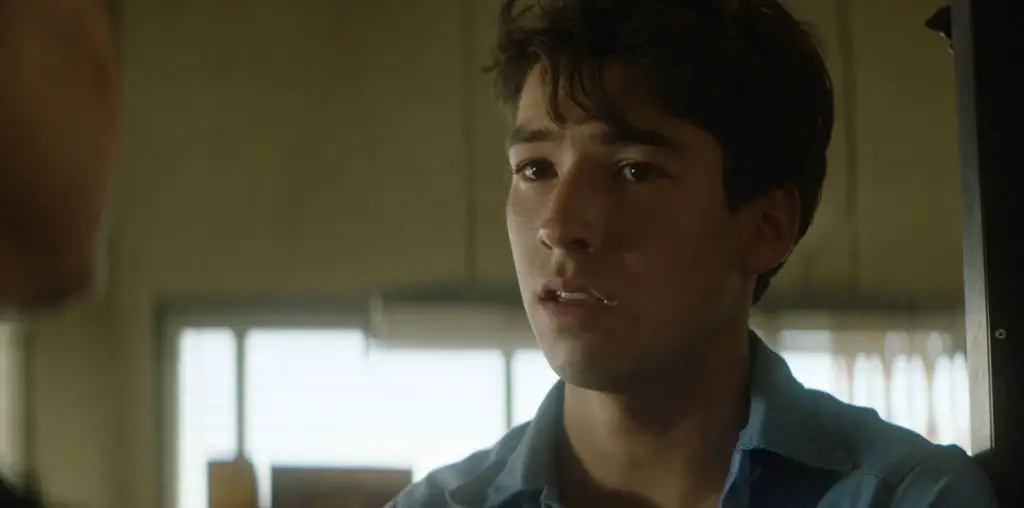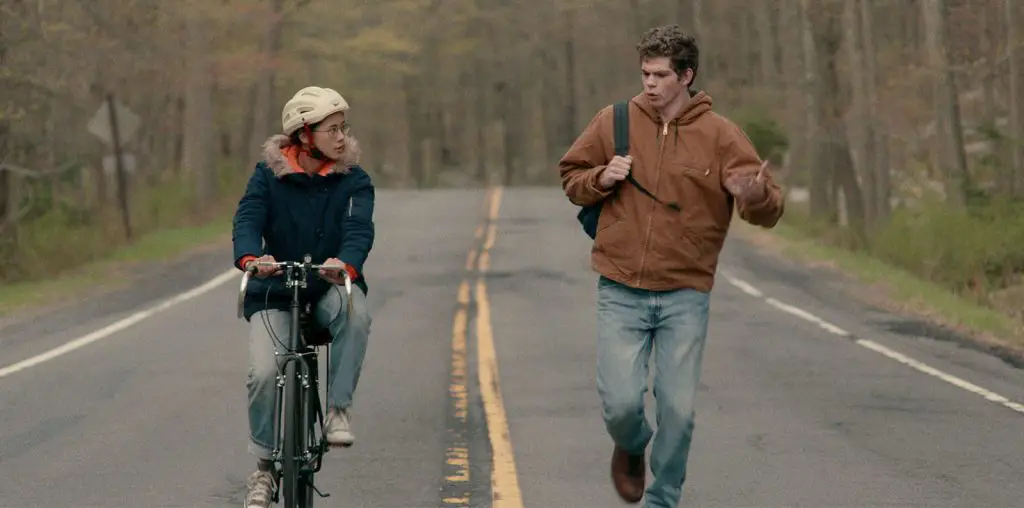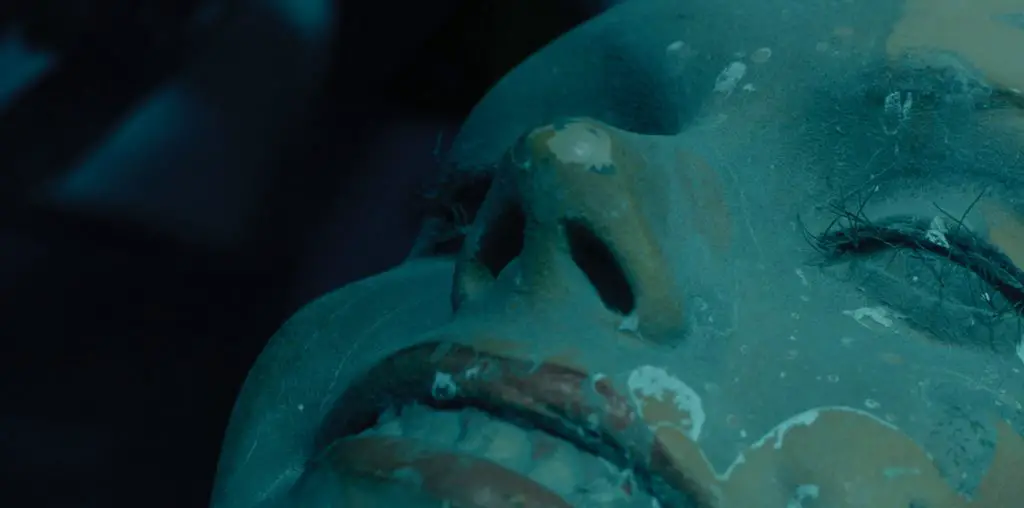
In Major Arcana Dink (Ujon Tokarski) is a carpenter by trade, but life has left him rudderless and he drifts from job to job. After living in Canada for several years, he returns to his backwoods hometown in Vermont on the occasion of his father’s death. An alcoholic from a family of alcoholics, he’s recently sober and trying to avoid booze. His intentions are tested when he sees an old flame, Sierra (Tara Summers), and his previous life collides with his new one.
His father left him land, a little money, and a ramshackle hovel that’s little more than a trash heap with a roof. He comes back to town primarily to collect the inheritance. Part of it being a large tract of land means he has some vested interest in staying. Picking through the detritus of an abandoned life, he grabs a chainsaw and walks off into the woods. With little more than the saw, some hand tools, and intricate skill at woodworking, he begins to build a cabin.

“…alcoholic from a family of alcoholics, he’s recently sober and trying to avoid booze…“
You really can’t go home again. Dink has an image in his mind of the town and its people from four years ago. He’s looking for that place. The townies, conversely, are expecting him to be the man who left. Of course, towns change. People change. Director Josh Melrod captures the ennui of this displacement beautifully. Dink left in a hurry before and never wrote home. Sierra and his mother (Lane Bradbury) wondered for years why he left, and where he went, and they have simmered in that resentment. Everyone involved is vaguely uncomfortable with a situation that should be familiar but has changed in unexpected ways.
Every object and person in the film is disheveled and filthy. Watching Dink put this world back on like a greasy old shirt leaves a viewer craving a long, hot shower. Contrasted with this grime is the pristine, pastoral cabin. In that clearing in the woods, he transforms into a precise artisan, adept and effortlessly confident. This craftsman builder is a very different man from the unkempt vagabond he seems to be the rest of the time. Watching him settle into this clean, clear mode is very satisfying. His mind is orderly, his task definite. He cuts down the trees, makes the boards, and builds the cabin using a precise mortise and tenon style. There is art in his method as well as in apprehension of the final artifact, a manifest testament to a person who has fully mastered this one aspect of life.

“The dissonance between old and new expectations, and the nuanced, un-processed changes from the years…”
The walking ghost that haunts him is Sierra. While he didn’t come back for her, once he sees her his old feelings come up again, and he begins to pursue her. She doesn’t mesh with the new model sober man anymore. She’s still drinking, and though he wants her, he can’t quite figure out how to be with her now.
Sierra has taken up tarot reading, and the film title is from the archetype cards in her deck. She reads Dink’s fortune, generically prognosticating based on textbook meanings of the cards, but he interprets the readings as portending a future with her, disregarding their troubled past, and current divergent paths. The dissonance between old and new expectations, and the nuanced, un-processed changes from the years between them, on top of her resentment over him leaving, sets the stage for an inevitable collision of then and now.
Of particular note is the music. Tokarski can sing and does justice to that high lonesome bluegrass sound, and the soundtrack serves the materially fluently with songs from Snow Patrol’s Gary Lightbody.
Major Arcana works on every level to convey the sense of a place in slow decay, and the sad futility of an attempt to find some familiar hope in the crash site of a former life.

Major Arcana (2019) Written and directed by Josh Melrod. Starring Ujon Tokarski, Tara Summers, Lane Bradbury.
9 out of 10


